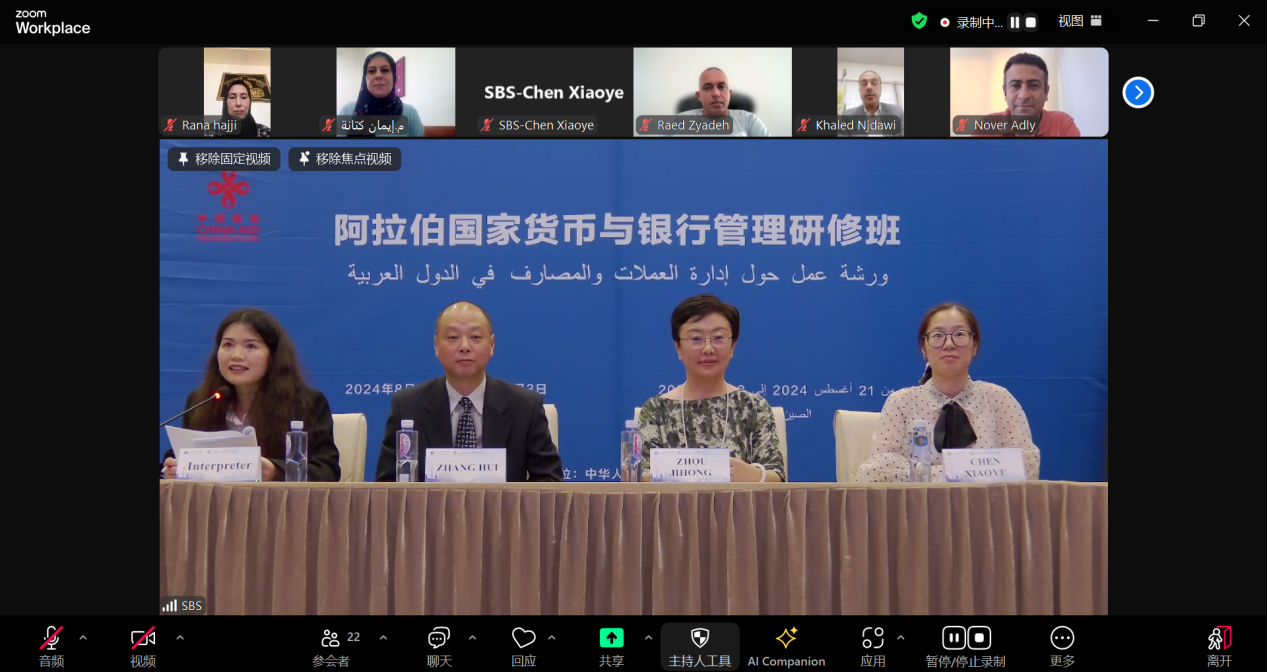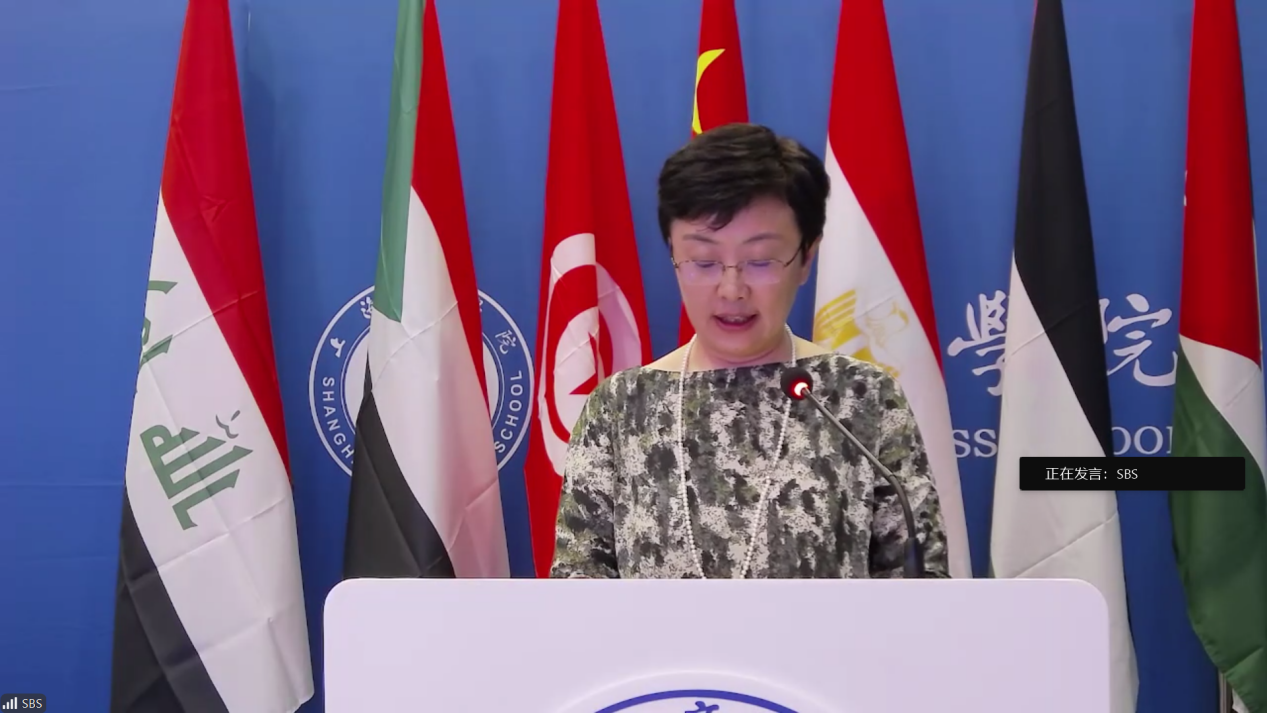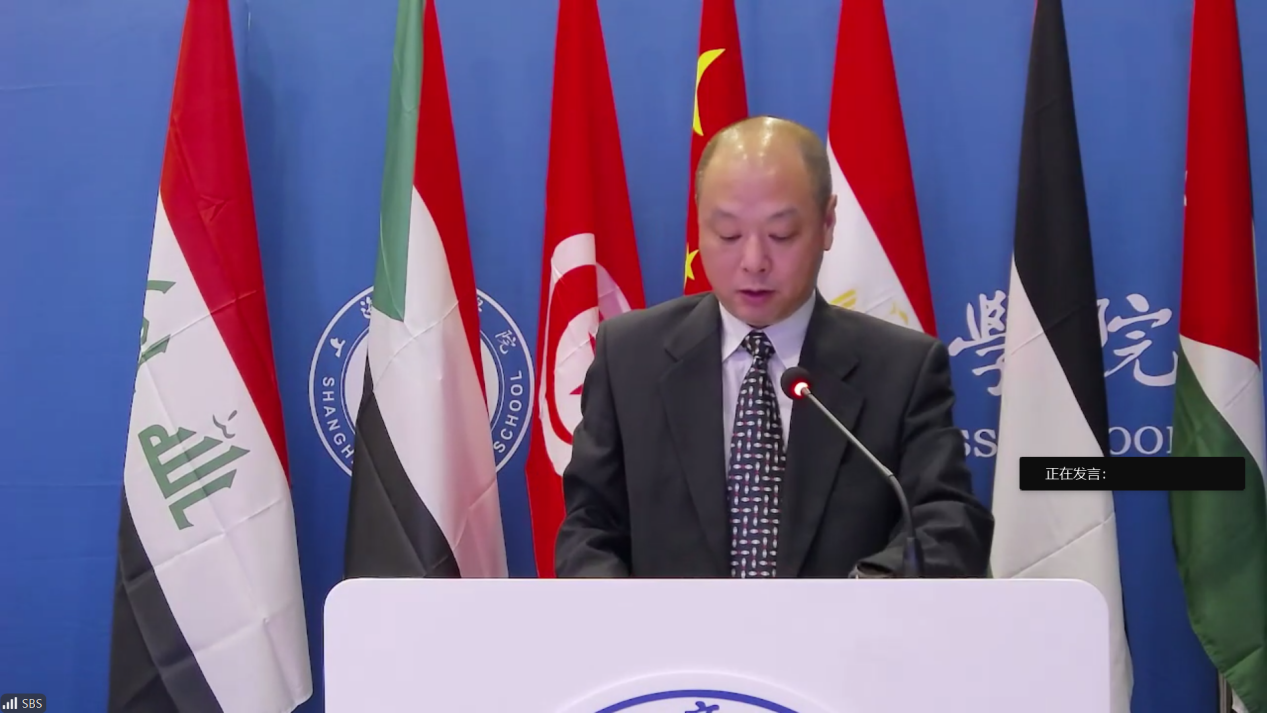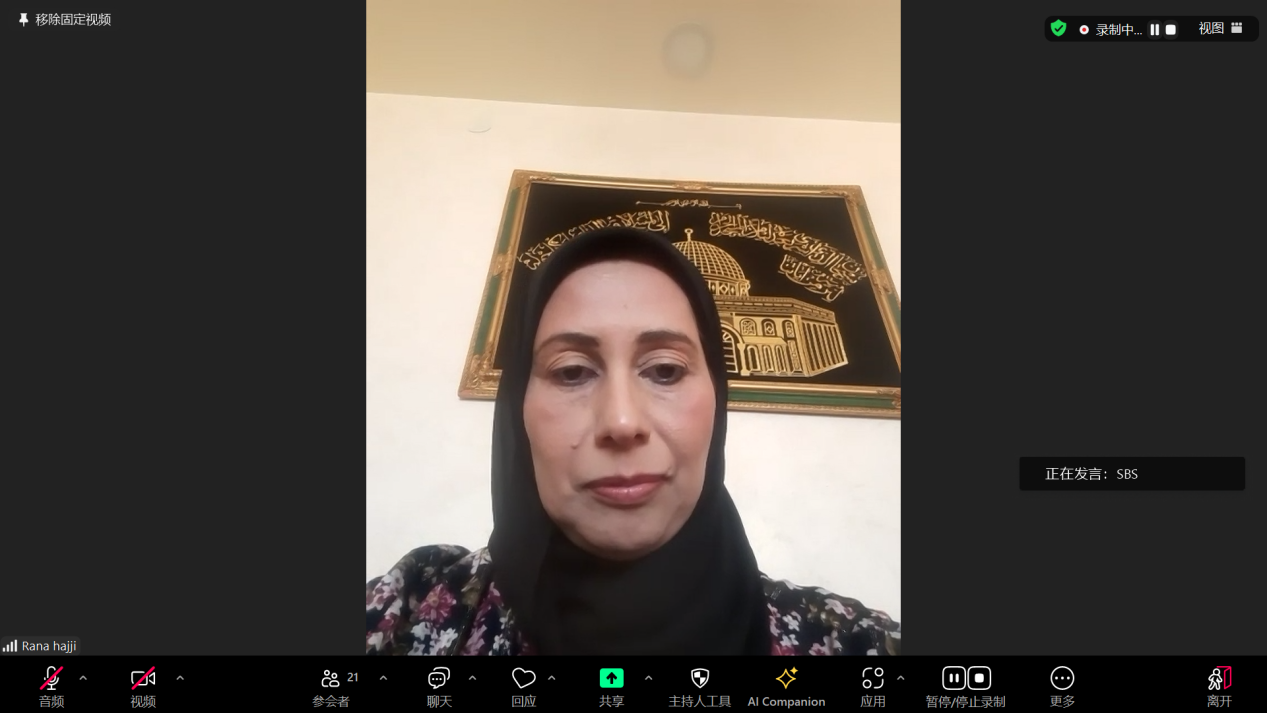On the afternoon of August 21, the online opening ceremony of الدورة التدريبية لإدارة العملات والمصارف للدول العربية, sponsored by the Ministry of Commerce and hosted by the MOFCOM Training Base for International Business Officials (Shanghai) at Shanghai Business School, was successfully held. The ceremony featured speeches by Zhou Jihong, Deputy Secretary of the Party Branch of the College of International Education, and Zhang Hui, Associate Professor at the School of Finance, Shanghai Lixin University of Accounting and Finance.
The friendship between China and Arab countries is long-standing and enduring. In December 2022, the Riyadh Declaration of the First China-Arab States Summit affirmed the mutual commitment to building a China-Arab community with a shared future oriented toward a new era. In May of this year, Chinese President Xi Jinping, at the opening ceremony of the 10th Ministerial Conference of the China-Arab States Cooperation Forum, emphasized that China is ready to work with the Arab side on the basis of “eight major cooperation initiatives” to put in place the following “five cooperation frameworks” to step up the building of a China-Arab community with a shared future.

Zhou Jihong remarked that in recent years, despite the complex and ever-changing international landscape and the dual impact of the pandemic, China has stepped up implementation of the prudent monetary policy. By leveraging both quantitative and structural adjustments in monetary policy, China has played a crucial role in stabilizing its domestic macroeconomic environment. In 2023, the People’s Bank of China and the Central Bank of Saudi Arabia signed a bilateral local currency swap agreement amounting to 50 billion yuan. As financial cooperation between China and Arab countries continues to deepen, this is expected to create more investment opportunities, mitigate trade risks, and foster regional economic development.

Zhang Hui emphasized that during the 2022 Central Economic Work Conference, President Xi Jinping stressed the imperative of preventing and resolving financial risks, recognizing the critical role of finance in shaping the broader development landscape. In the context of economic recession and growing macroeconomic uncertainties, exploring innovations in economic development and financial risk prevention has become increasingly vital. Currently, China’s financial system is becoming more robust, with the financial industry’s scale steadily expanding and its contribution to GDP rising. A strong commercial banking system remains integral to the advancement of China’s real economy. Zhang expressed confidence that China’s developmental experience will provide valuable insights for the seminar participants.

On behalf of all the participants, Ms. Rana Hajji, Department Head from the Ministry of National Economy of Palestine, expressed her sincere gratitude to the Ministry of Commerce of China and Shanghai Business School for organizing this seminar. She shared that her participation in the foreign-aid training program in 2017 remains an unforgettable and enriching experience, and she believes that this seminar will yield even more fruitful outcomes for herself and all participants.

This 14-day seminar has attracted 27 participants from six countries, including Egypt, Iraq, Jordan, Palestine, Sudan, and Tunisia.
Written by: Zhang Xinyue
Photos by: Li Zheng
Reviewed by: Chen Wei